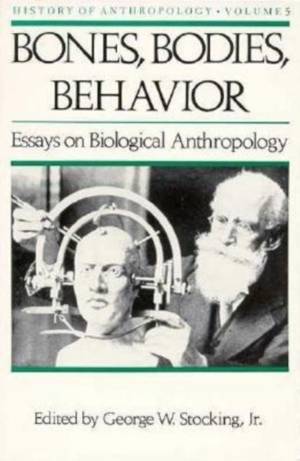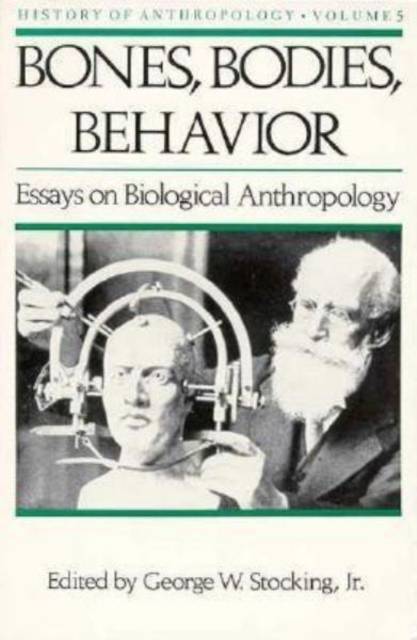
- Retrait gratuit dans votre magasin Club
- 7.000.000 titres dans notre catalogue
- Payer en toute sécurité
- Toujours un magasin près de chez vous
- Retrait gratuit dans votre magasin Club
- 7.000.0000 titres dans notre catalogue
- Payer en toute sécurité
- Toujours un magasin près de chez vous
Bones, Bodies AMD Behavior
Essays in Behavioral Anthropology Volume 5
30,95 €
+ 61 points
Description
History of Anthropology is a series of annual volumes, inaugurated in 1983, each broadly unified around a theme of major importance to both the history and the present practice of anthropological inquiry. Bones, Bodies, Behavior, the fifth in the series, treats a number of issues relating to the history of biological or physical anthropology: the application of the "race" idea to humankind, the comparison of animals minds to those of humans, the evolution of humans from primate forms, and the relation of science to racial ideology. Following an introductory overview of biological anthropology in Western tradition, the seven essays focus on a series of particular historical episodes from 1830 to 1980: the emergence of the race idea in restoration France, the comparative psychological thought of the American ethnologist Lewis Henry Morgan, the archeological background of the forgery of the remains "discovered" at Piltdown in 1912, their impact on paleoanthropology in the interwar period, the background and development of physical anthropology in Nazi Germany, and the attempts of Franx Boas and others to organize a consensus against racialism among British and American scientists in the late 1930s. The volume concludes with a provocative essay on physical anthropology and primate studies in the United States in the years since such a consensus was established by the UNESCO "Statements on Race" of 1950 and 1951. Bringing together the contributions of a physical anthropologist (Frank Spencer), a historical sociologist (Michael Hammond), and a number of historians of science (Elazar Barkan, Claude Blanckaert, Donna Haraway, Robert Proctor, and Marc Swetlitz), this volume will appeal to a wide range of students, scholars, and general readers interested in the place of biological assumptions in the modern anthropological tradition, in the biological bases of human behavior, in racial ideologies, and in the development of the modern human sciences.
Spécifications
Parties prenantes
- Editeur:
Contenu
- Nombre de pages :
- 272
- Langue:
- Anglais
- Collection :
- Tome:
- n° 5
Caractéristiques
- EAN:
- 9780299112547
- Date de parution :
- 15-09-90
- Format:
- Livre broché
- Format numérique:
- Trade paperback (VS)
- Dimensions :
- 151 mm x 227 mm
- Poids :
- 367 g

Les avis
Nous publions uniquement les avis qui respectent les conditions requises. Consultez nos conditions pour les avis.





